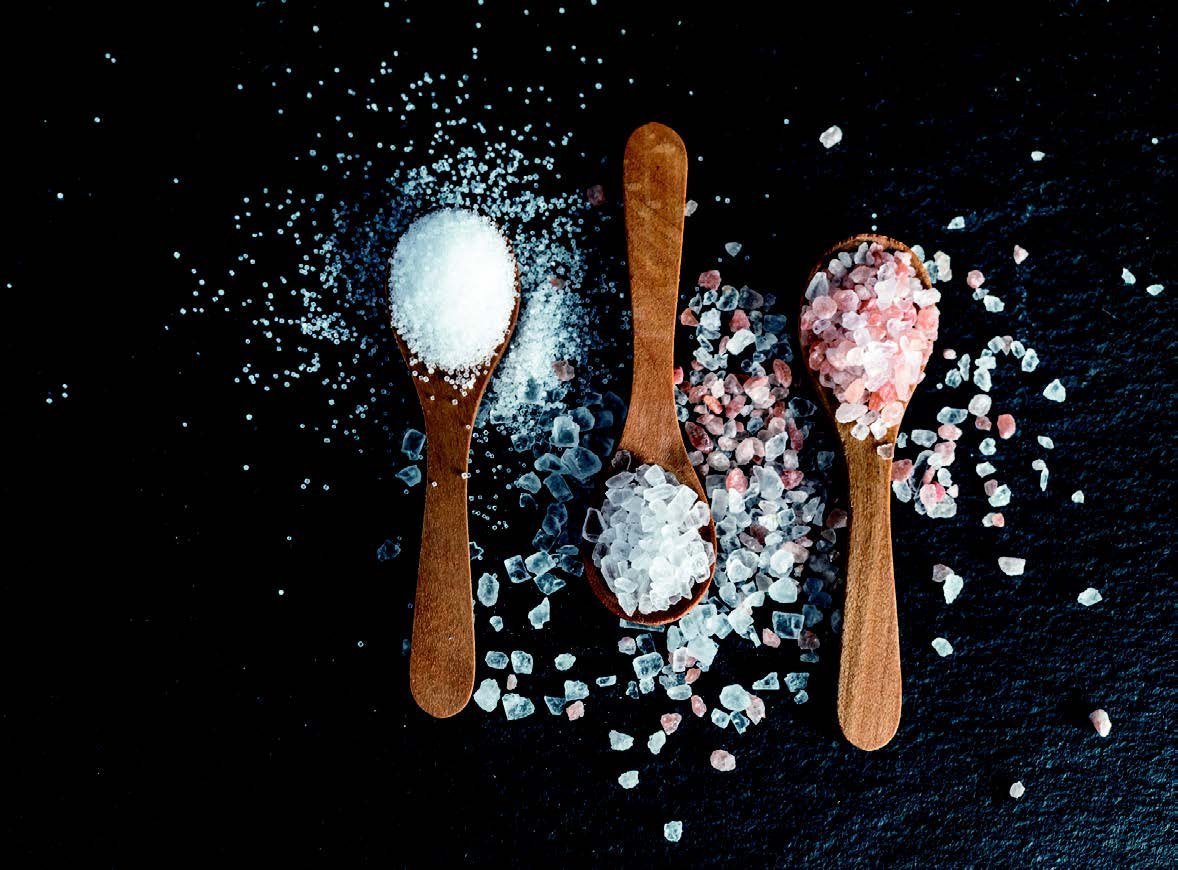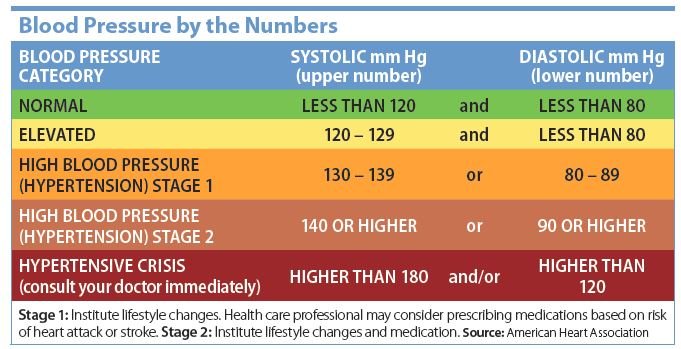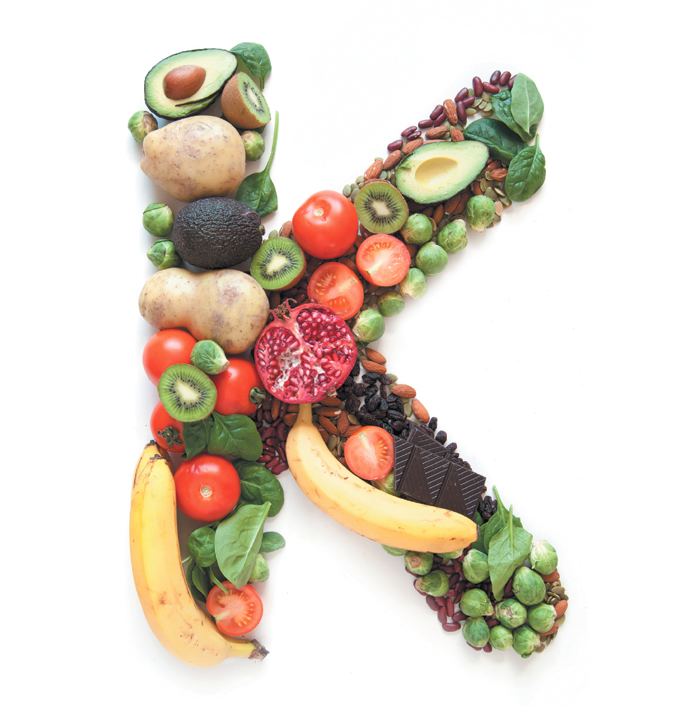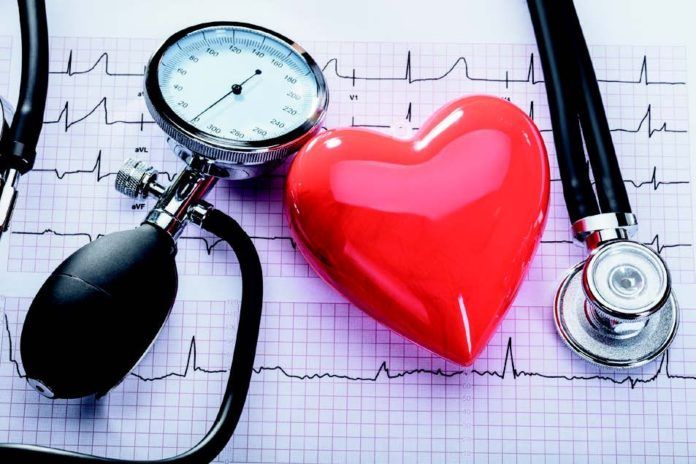One in three American adults has hypertension (high blood pressure). And, because hypertension causes few obvious symptoms, many people with high blood pressure don’t even know it. What’s more, only about half of all diagnosed individuals are controlling their blood pressure adequately. This condition is a primary or contributing cause in more than 1,000 deaths each day and costs the nation $48.6 billion each year, according to the Centers for Disease Control and Prevention. But, straightforward lifestyle changes can both prevent and treat this common and devastating “silent killer.”
What is Blood Pressure? “Blood pressure is the force the blood exerts on the walls of the arteries,” says Sondra M. DePalma, DHSc, PA-C, a cardiology PA with PinnacleHealth CardioVascular Institute at UPMC Pinnacle and an author of the American Heart Association’s 2017 Guideline for the Prevention, Detection, Evaluation, and Management of High Blood Pressure in Adults. The top number (the systolic pressure) is the force exerted on the artery wall with each beat (contraction) of the heart. The bottom number (the diastolic pressure) is the force when the heart is at rest (between beats). If readings rise above 120 systolic and 80 diastolic, risks begin to rise. Treatment through lifestyle changes and/or medication is recommended if numbers rise over 130 or over 80. [For more information on blood pressure readings, see Blood Pressure by the Numbers, below.]
Blood pressure is affected by the diameter of the vessels, the amount of blood that flows through them, and the elasticity of the vessel walls. A change in any of these factors can change blood pressure. Dehydration, for example, which reduces the amount of fluid in the circulatory system, can dangerously lower blood pressure. Atherosclerosis (the build-up of plaque on blood vessel walls) narrows the passageway, increasing blood pressure. But the leading cause of high blood pressure is loss of elasticity of the blood vessel walls. “As we age, our blood vessels naturally lose some elasticity, so blood pressure tends to go up with age,” says DePalma.
The pace and severity of this loss of elasticity is strongly influenced by lifestyle. Smoking, physical inactivity, drinking too much alcohol, being overweight or obese, and consuming a diet high in sodium and low in potassium are all lifestyle risk factors that increase blood pressure. Diabetes, obesity, and sleep apnea are associated with increased risk, and kidney or thyroid problems and adrenal gland tumors are considered secondary causes. Illegal drugs, such as cocaine and amphetamines, and several legal mediations can also increase blood pressure. “Regular use of NSAIDS, decongestants, and some herbal supplements (particularly ephedra and St. John’s Wort) can contribute to high blood pressure or may make it more difficult to manage,” says DePalma. “Try to limit use of these products and take only the recommended dose for the shortest duration possible.”
Cause for Concern: “High blood pressure is known as the ‘silent killer’ because it significantly increases risk of death without causing any noticeable symptoms,” says DePalma. Apart from unhealthy dietary patterns and excess body weight, high blood pressure is the leading risk factor contributing to cardiovascular death, disability, and decreased quality of life in America. “High blood pressure puts increased strain on organs like the eyes, kidneys, and heart, which can potentially cause damage,” says DePalma. It also creates instability that can cause plaques on the lining of the blood vessels to rupture, causing strokes or heart attack. All of this explains why high blood pressure is associated with a doubling in risk of a heart attack, is responsible for half of all strokes, is the second leading cause of kidney failure, and is associated with heart failure, dementia, vision problems, and sexual dysfunction.
Prevention and Treatment: According to the Centers for Disease Control and Prevention, about seven in 10 U.S. adults with high blood pressure use medications to treat the condition. However, blood pressure remains high in many of these people. DePalma says that, with proper medical supervision, lifestyle changes can be as effective as medications in controlling high blood pressure. “And a lot of the same measures that treat high blood pressure can also help prevent it,” says DePalma. Most people are aware of the importance of limiting intake of sodium: the new national recommendation is to keep daily sodium to less than 2,300 milligrams (mg) a day. A 2014 study led by Friedman School dean and editor-in-chief of Tufts Health & Nutrition Letter Dariush Mozaffarian, published in the New England Journal of Medicine, estimated that reducing dietary sodium from current global levels of 3,950 mg to 2,000 mg per day would prevent 1.65 million cardiovascular deaths worldwide each year, or about one of every 10 deaths from cardiovascular causes globally. In this study, about 58,000 U.S. cardiovascular deaths per year—more than 1,000 deaths per week—were attributed to high sodium intake.
Dietary potassium is also an important factor in managing blood pressure. Because potassium helps the body excrete sodium and is involved in relaxing the blood vessel walls, eating potassium-rich foods is thought to reduce the harms of excess dietary sodium and lowers blood pressure. New 2019 national guidelines for potassium recommend men aim for 3,400 mg of potassium per day, and women 2,600 mg. Potassium is found in foods like fruits, vegetables, dairy foods, and fish. While bananas are one well-known food source, there are other foods that have at least as much: A medium banana has about 420 mg of potassium, one cup of baked cubed acorn squash has 896 mg, one medium-sized baked sweet potato with skin has 542 mg, and one cup of plain yogurt has 531 mg. A diet that includes greens and other vegetables, fruits, legumes, dairy foods, and fish should provide plenty of potassium.

Image © Svetlana_Angelus | Getty Images
Individuals with significant kidney disease or other conditions that affect how the body handles potassium, or those who take certain medications such as ACE inhibitors for high blood pressure, should not increase potassium intake without talking to their doctor. Potassium supplements should never be taken without a prescription, as supplements can cause high blood potassium (hyperkalemia). Like high blood pressure, hyperkalemia is also fairly symptomless, but it is extremely dangerous, with the potential to cause an abnormal heart rate that could lead to death. A healthy dietary pattern will provide plenty of potassium without the risk of overdoing it.
Avoiding tobacco products and getting (or staying) active are essential as well. Aerobic and resistance activities (such as lifting weights or moving one’s own body weight) have both been shown to lower the risk of developing high blood pressure and reduce blood pressure levels. A 2019 randomized controlled trial published in PLoS One compared the effects of aerobic, resistance, and combination training on blood pressure and other cardiovascular disease risk factors in 69 overweight or obese adults with high blood pressure and a history of sedentary lifestyle. The study found that combined training (three days a week of 30 minutes of aerobic activity plus 30 minutes of resistance exercise) was associated with significant reductions in blood pressure (as well as increased body strength and lean body mass).
While genetics and some of the natural effects of aging can’t be changed, being active and consuming a healthy diet that includes fruits, vegetables, dairy, and fish (foods naturally low in sodium, and rich in potassium) and that limits packaged and processed foods high in sodium can help to prevent and treat the often devastating effects of high blood pressure.


Try these tips to prevent, and treat, high blood pressure through better lifestyle:
Follow a healthy dietary pattern, including:
-Read the labels on packaged and processed foods, looking for lower sodium products that will help you get sodium intake down toward 2,300 mg per day (the average U.S. sodium intake is about 3,500 mg per day)
-Get plenty of dietary potassium from vegetables and fruits (such as winter squash, sweet potatoes, bananas, greens, and avocados), dairy, and beansEat fish, especially fatty or oily fish, twice per week
-Engage in all types of regular physical activity
-Maintain a healthy weight or strive for slow, steady weight loss (even modest weight loss can lower blood pressure)
-If you drink alcohol, limit to two or fewer daily drinks for men and one or fewer for women
-Quit smoking






















I have had blood pressure issues for over 40 years wirh medication, under doctors care. I am constantly challenged, with daily observations as to how to control it, I rankly am usually over 140 and 80. The part that always troubles me is the causal effect of lifestyle, diet, exercise, etc. on blood pressure readings. I have been a vegan/pescatarian since 1971, after VietNam service, have practice yoga since seventies, have meditated (on and off) since 1972, have never been overweight, am in a corporate desk job, and through all of this, have had to maintain a serious regimen of blood pressure medication. I take Amlodipin, Nebivolol, Losartan, Hydralazine, Potassium, Magnesium, and Rosuvastatin, Vitamin D3 and I still struggle with my blood pressure. Blood pressure issues are also common to my 2 brothers who are also not overweight nor have been in stressful jobs, a retired VA nurse, and a school Principal, Our common thread is Black, which I am convinced science has been racist in it’s appreciate and rigorous study of facts such as ours. The tendency is to suggest poor diet, overweight, etc. etc. and not look at situations such as ours that could suggest some different causes for high blood pressure and ultimately a better form of treatment
Recently this year i am experiencing blood pressure which usually beats 130-140 the upper case and 80 the lower case. i am not yet taking medication but consult the doctor. At the same time I have a diabetics case. I am in confusion state on how to balance the BP and the diabetics although i am trying to control them through diabetics.
I have learned from this article I should regularly visit the doctor and act as per the prescription and become more strict in my dietary style. I will use you news letter to change my lifestyle to mitigate/reduce this fatal disease.
thank you
Hi my family member! I wish to say that this post is amazing, nice written and come with approximately all significant infos.
I would like to look extra posts like this .